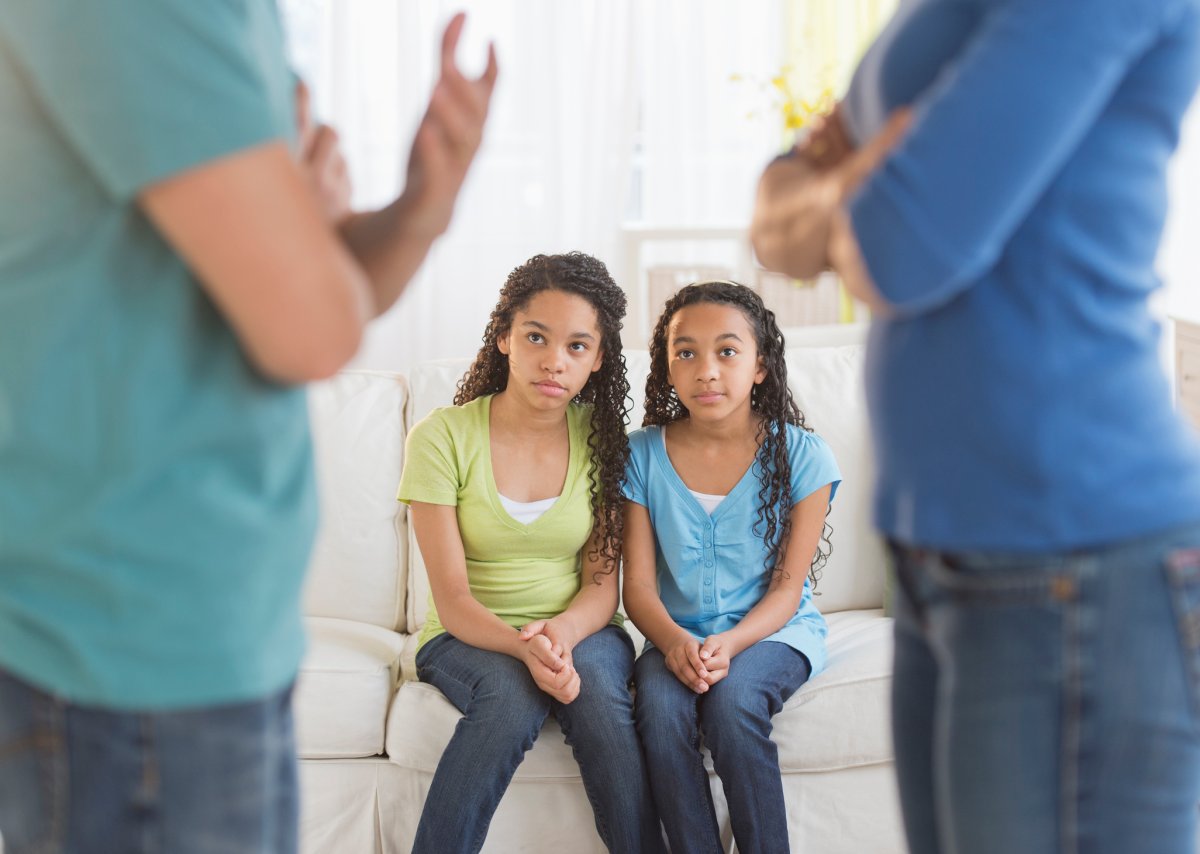It seems like every time you scroll through your social media feeds, people are posting photos that celebrate life’s major milestones, like engagement announcements, pregnancy reveals and wedding day “I dos.”

Now we’re adding divorce selfies to the mix because, well, it too is a big life event that couples want to honour or acknowledge in some way.
READ MORE: Why parents need to contact a pediatrician when going through divorce
And it’s gaining traction on social media.
Despite the negative connotations often associated with the word “divorce,” many of these selfies appear to show an amicable end to people’s relationships.
Some selfies, however, come across as a little awkward perhaps.
https://www.instagram.com/p/BUUn4FYjHh0/?tagged=divorceselfie
Now, divorce selfies have been around for a little bit, but their growing popularity has raised a couple of important topics of discussion: is it possible to have an amicable divorce and how important is it to stay civil post-breakup especially when kids are involved?
According to 2011 Statistics Canada numbers, about five million Canadians have separated or divorced within the last 20 years. Overall, about four in 10 had a child together at the time of their separation or divorce, with about 24 per cent (or 1.2 million Canadians) having at least one child who was 18 years old or younger.
Married couples were almost twice as likely as couples in common-law relationships to have kids under the age of 18 when their unions ended.
However for Brandie Weikle, founder of the family relationships website TheNewFamily.com and advocate for positive co-parenting, a civil post-divorce relationship is achievable but it will take some time and work.
“Divorce is certainly an adjustment for everybody in the household, including the children,” Weikle says. “But the best in class research in the area shows that it’s not the fact of the divorce itself that’s harmful to kids but how it unfolds and how the parents interact with one another. So if they’re interacting with each other negatively within a marriage, that’s extremely harmful as is putting the children in the middle of some sort of really negative divorce and custody battle … That’s what can be damaging to kids.”
And putting children in these types of negative situations during divorce proceedings can have a long-term impact on their development, according to a 2008 Ohio State University study.
According to researchers, while children who live in stable post-divorce families do have some difficulty when it comes to applying to college and may struggling with poverty, it’s children who live in unstable post-divorce families who have the most difficulty.
In fact, children in such unstable households “fared more than twice as poorly” on these measures when compared to children in stable post-divorce family households.
It’s studies like this that highlight the importance of civility and amicability post-divorce as it is “absolutely crucial” in order for children to adjust to such changes in a healthy manner, Weikle says.
“It’s just so hard on children to feel as if they’re in the middle of a struggle between their two parents,’ she says. “It removes the aspect of safety and assurance of their place in the world if there’s all this uncertainty around how their time is going to be shared between the two parents’ places. It’s also very difficult for kids if they hear negative talk about one parent from the other.”
READ MORE: How to divorce: Tips for Brad and Angelina or any couple calling it quits
And such civility can go a long way for not just the child, but for the parents as well – but it might not be easy, at least at first.
“What kids need to hear at the time of the divorce or separation is that their needs are going to be taken care of,” Weikle adds. “I’m not going to suggest that any of this is easy. Even parents who co-parent well together will still have the internal work to do to get over the disappointment … So we have to make space for our own healing.”
Weikle adds, “So two processes need to happen. One where you’re making the best decisions for the children together as a team, and then another process where you’re seeing a counsellor, spending time with friends and self-care – all of the stuff that will build you back up again, but they have to be separated. So if you have a lot of anger you need to work through … that has to be handled with one process, and it can’t be coupled with your decision-making around the children.”
It’s also a great idea to set some ground rules, Weikle says. So no name-calling and speaking ill of the other parent in front of the other and keep whatever line of communication open that is working for you. This could be done through face-to-face meetings, phone calls, emails or texts – whichever can keep discussions calm and civil and not emotional, she says.
“The end of a romantic relationship does not have to mean the end of a happy family life or happy kids,” Weikle says. “Even though that’s what may feel like initially, it doesn’t have to be the end of a happy family.”









Comments